Is iPad really just a proof-of-concept device?
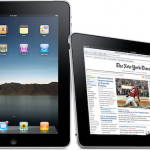
Today, Apple announced modest launch-day iPad sales of 300,000 units, which include preorders. On March 26, in post "Of course media bias favors Apple," I put launch sales at about 330,000 -- based in part on over-widely reported rumors. Five days earlier, in post "Be smart, don't buy into iPad hype," I warned that bloggers, journalists and Wall Street analysts had gone bonkers over the device, losing some common sense along the way. Piper Jaffray analyst Gene Munster is among them. Over the weekend, he revised first day iPad sales to 600,000-700,000, leading to today's admission he got it wrong. Munster also lowered full year sales estimates to 4.3 million from 5.6 million. Forrester Research forecasts 3 million iPad shipments.
Modest initial sales aren't surprising, even though some Apple watchers will wonder if 300,000 units live up to the hype. As I explained on April 2, modest early sales follow the pattern of most other new-category Apple products, including Macintosh, iPhone, iPod and iTunes Store. Distribution is limited to the United States and the 3G model isn't yet available, which also mitigate early sales.
Will iPad bomb or be the bomb?
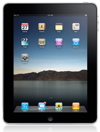
I'm now convinced that iPad can't fail, if for no other reason than the momentum of hype. Too many people believe in iPad. It's like a religion. But there are measures of success, and I don't expect iPad will be a fast starter -- nor does it need to be. Forrester Research conservatively forecasts Apple selling 3 million iPads this year.
Apple's history of new product categories is evidence enough that iPad sales will slowly proceed -- after a modest early surge -- before really taking off. For example, Macintosh (in 1984), iPod (in 2001) and iPhone (in 2007) all started off modestly. Some overly enthusiastic Mac fans will question any assertion that iPhone sales started off modestly. Hey, but they did compared to what came later. Apple reached 1 million iPhone v1 shipments in 74 days, a number later paled by iPhone 3G and 3GS launches.
Rating three months of personal iPad punditry

Tomorrow morning, Apple's iPad goes on sale. Today is then perhaps a good time for assessing my last three months of prognostications about the tablet. I have not exactly been iPad's biggest fan, and I'll admit some of that trepidation is reaction to my journalist peers going so gaga over the device -- pretty much sight unseen.
Earlier today at BoingBoing, Cory Doctorow wrote: "I think that the press has been all over the iPad because Apple puts on a good show, and because everyone in journalism-land is looking for a daddy figure who'll promise them that their audience will go back to paying for their stuff." I agree.
What does Steve Jobs' 'inner circle' say about Apple?
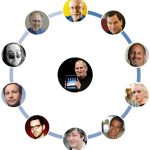
Over at Digital Inspiration, Amit Agarwal asserts there is an inner circle of 10 journalists that get advance review access to hot new Apple products -- ah, like iPad. The first iPad reviews appeared overnight, and many of them are quite favorable. The reviews come just days before iPad goes on sale -- Saturday 9 a.m. local time here in the United States.
Agarwal does an excellent job detailing the three-phase process, who is in the inner circle and what are the benefits to Apple. I won't repeat what he so astutely explains. Read his post. Too much Web content is the regurgitation of what someone else reported, rather than bloggers or journalists doing original reporting. However, Agarwal graciously gave me permission to use the inner circle graphic he created. If you don't know who these people are, read Agarwal's post!
What 1984 Macintosh marketing reveals about iPad

The strangest of role reversals is occurring right now as Apple prepares to release iPad on Saturday. In 1984, Apple needed the media and publishers to promote Macintosh. Twenty-six years later, the media and publishers need -- or seem to think they do -- Apple and iPad. How strange is that?
Apple's "1984" Super Bowl commercial is legendary advertising. The commercial aired just once on TV, although it lives online in its original form and in many spoofs. But Apple's Macintosh promotion didn't stop there. For example, Apple purchased all the ad space -- 39 pages -- in the Newsweek 1984 election issue. The Graphical User Interface Gallery has scanned and preserved all 39 pages of ads.
Apple must apply 'right price, right rights' model to e-books
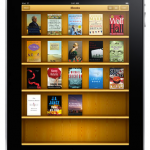
There are many reasons why iPod and iTunes Store succeeded where competing products failed. But two reasons stand out: Right price, right rights. If iBookstore is to succeed, Apple must apply the same model to e-books and other publications sold there. CEO Steve Jobs and company must seize control of pricing during content negotiations -- and, more importantly -- rights. There must be a single (and generous), standard usage right for all titles, including magazine and newspapers.
When Apple launched iPod in October 2001, the "right price, right rights" model was the best possible: Free. Music labels hadn't locked down CDs with onerous digital rights management mechanisms. Therefore, people could rip music and make their own "mixed tapes" CDs. Meaning -- people buying iPod already owned content they could put on the device. Apple wisely chose not to restrict music copying to iPod. The price was free and the rights were unrestricted.
We asked: Did you buy iPad -- and you answered!

The iPad cometh this Saturday to an Apple Store near you -- or in a pretty box delivered to your door. No doubt, this week the rumor mill will again run wild about what to expect. I've been wondering about rights usage for ebooks. Can Apple do better than Amazon or Barnes & Noble? That answer is best for a blog post, but not this one.
March 21 post "Be smart, don't buy into iPad hype" was 98 percent about blogger, news media and Wall Street bias favoring Apple. I ended the post "by conducting an informal survey, asking simply: Did you buy an iPad?" Nearly all the comments answered that question, rather than address the post's main topic. That's perhaps commentary on the topic, my writing, interest in iPad -- or all three! I've grabbed a sampling of the best comments about preordering iPad. With that introduction, here are your answers to the question: Did you buy an iPad?
Of course media bias favors Apple
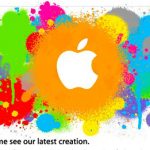
I have three questions for my Betanews writing colleague Carmi Levy: Do you own a Mac or iPhone? Do you invest in Apple? Did you preorder iPad or plan to buy one next week? For fair disclosure, I am writing this post on a 13-inch MacBook Pro (running Snow Leopard). I don't own an iPhone (anymore) and I have never invested in Apple (I own no stock whatsoever; I'll die poorer by my no-conflict-of-interest principles). I ask these questions because he writes: "To set the record straight, from where I sit, the media are not biased toward Apple."
Carmi Levy made that -- and many other shocking statements -- in late Thursday post: "Enough with the Apple bashing!" Eh, what Apple bashing? In my Sunday post, "Be smart, don't buy into the iPad hype," I gave clear examples how bloggers, reporters and Wall Street analysts are biased in favor of Apple. My colleague offers no evidence, just innuendo, to support claim that a "backlash against Apple increases to compensate" for Apple succeeding "where others have failed."
Windows Phone 7 Series imitates Apple's iPhone in the worst ways
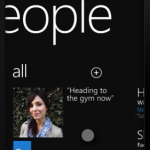
For years, people have accused Microsoft of being an imitator, rather than innovator. Finally there is evidence: The ways Windows Phone 7 Series imitates the very worst of Apple's iPhone. Unless there is the strangest of coincidences -- like two students having the same wrong answers on a high school history test -- Microsoft is imitating Apple, using the same strategy to make the same mistakes. It's either imitation or incompetence, and out of fairness I assume the former.
The first imitation is the most baffling: Limited multitasking. Like iPhone, Windows Phone 7 Series will allow multitasking for some of its own applications, but not others. When open but not in use, third-party apps go into a pseudo-off ("dehydrated") state. By comparison, Google's Android, Nokia's Maemo or Symbian OS and Palm's WebOS all multitask (e.g., run background applications) just fine.
Palm's not dead, so why write its epitaph?

Wall Street's vultures are circling over Palm, screeching for its death. Tech pundits are joining the death watch, in one of the more morbid displays of graveyard tech journalism ever. As I've asserted repeatedly, in business perception is everything. The Palm death watch creates negative perceptions about the company and its future that will drive away customers and investors. Palm doesn't have to die, but death may be its future as pundits' self-fulfilling prophecies.
Tech blogs simply exploded with Palm is dead predictions over the weekend following a news story that two Wall Street analysts had cut Palm's target price to $0. Zero? ArsTechnica asserted that "RIP Palm: it's over, and here's why." All Things Digital: "Exercise in Futility? Palm Pre Plus, Pixi Plus Headed to AT&T." OS News: "Is Palm dying?" Monday Note: "Who will buy Palm?" That's a simple sampling.
Be smart, don't buy into the iPad hype
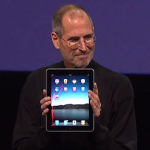
The state of the news media is this: Gossip and rumors are rapidly replacing factual reporting -- in large part driven by the Google economy. No company is benefitting more than Apple, and most recently with the launch of iPad. But rumors are no surefire way to sales success. Big hype will energize early iPad sales, but can it sustain them? I wonder, and perhaps you have the answer. I'm not looking for a scientific answer, just your story to tell -- more on that in at the end of this post.
The Mac-obsessed blogosphere, news media and social crowd is a frightening but exhilarating phenomenon. Marketers and public relations companies across the globe are watching the Apple-hype phenomenon and trying to guess how they can imitate it. They can't. There is inherit bias in the products bloggers, journalists and socialwebites are using, or the companies that they invest in.
Microsoft's Bill Buxton tells UI developers to 'do it naturally'
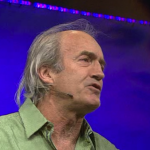
Microsoft should make Bill Buxton its front man -- the main spokesperson. Buxton, principal researcher for Microsoft Research, has style, great enthusiasm and vision. In an alternate universe, Buxton founded a company like Apple; only better. Buxton is more visionary than Apple CEO Steve Jobs, has better sense of good design (he is a designer, after all) and understands great design in context of the flow of history. Perhaps if Buxton had more ego, he would run a company as successful as Apple, or Microsoft. But humility is part of his appeal.
Buxton stormed the Microsoft MIX10 stage today, bringing along hearth of wisdom and loads of energy. His energy is simply intoxicating. Last year, Buxton kicked off the MIX keynotes. This year he ended them -- and not with enough stage time. The first keynote, yesterday, started with sedate Scott Guthrie, Microsoft corporate vice president, talking Windows Phone 7 Series. Today's keynote began with Internet Explorer 9 team leader Dean Hachamovitch debuting the new browser, which is available as developer preview.
Windows Phone 7 Series actually looks pretty good

Zune -- along with Expression Blend, Silverlight, Visual Studio and XNA -- may yet save Windows Phone 7 Series. During the kick-off MIX10 keynote earlier today, Microsoft product managers showcased features, development scenarios and, most importantly, user experiences derived from Zune HD. Perhaps Windows Phone 7 Series isn't a hopelessly lost cause after all. Microsoft's competitive postion would actually look good, if phones were shipping now and not in six to eight months.
In September, I asserted that Zune HD should have been the Microsoft phone. The user interface and user experience (some of that derived from Zune 4.0 software) is exceptionally good -- particularly coming from Microsoft. Finally, Microsoft is carrying forward and extending a great user interface motif. Better: Windows Phone 7 Series is inheriting and extending the social sharing concepts imbued into Zune 1.0.
Apple's HTC patent lawsuit is a bluff
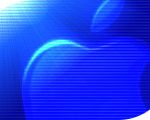
Now that buzz about Apple's patent lawsuit against HTC has quieted a bit, I'm ready to pipe in with some contrarian analysis. I agree with other pundits suggesting that the lawsuit is competition by litigation, where Apple hopes to scare off mobile manufacturers from licensing Android. Surely some handset manufacturers will pull back, but they would be foolish to do so. For other existing and potential Android licensees, the lawsuit is a get out of jail free card. Apple's patent case should embolden, not restrain them. There may never be a better time to license Android than now.
Apple claims infringement of 20 patents related to iPhone's user interface. Engadget's March 2nd patent breakdown is a must-read clinical analysis. But there's more to competition by litigation than the actual patents. Lawsuits often aren't so much about what's right but what lawyers think they can prove; often the winner tells the more believable story, even in patent cases. Similarly, much strategy goes into lawsuits -- how they're presented, where they're filed and when. Then, of course, there is whom. In this case, Apple took on HTC and not Google. Now why is that?
Bing gains show why Microsoft-Yahoo search deal is a dumb idea

One of Microsoft's major justifications for the Yahoo search deal is scale. CEO Steve Ballmer has repeatedly asserted that greater scale would allow Microsoft to improve search accuracy. Just last week he told Search Marketing Expo West attendees: "The ability to put together Yahoo's volumes and Microsoft's volumes and use that in a way that improves the experience more, let's call it all involved parties, we think is absolutely fantastic."
But the scale argument presumes that Microsoft and Yahoo would combine search share. The deal is in place but not fully implemented, and already Microsoft's Bing is taking away search share from Yahoo -- not Google. In February, Bing's US search share reached 11.5 percent, up from 11.3 percent month over month, according to ComScore. Yahoo share declined to 16.8 percent from 17 percent during the same time period. In June 2009 -- the month before announcing their search deal -- Yahoo search share was 19.6 percent and Microsoft 8.4 percent. But Microsoft already was rising, because of the Bing launch and millions of dollars in supporting advertising. For perspective, Google search share was 65.5 percent in February and 65 percent in June 2009.
Joe's Bio
Joe Wilcox is BetaNews executive editor. His motto: Change the rules. Joe is a former CNET News staff writer, JupiterResearch senior analyst, and Ziff Davis Enterprise Microsoft Watch editor.
Ethics Statement© 1998-2025 BetaNews, Inc. All Rights Reserved. About Us - Privacy Policy - Cookie Policy - Sitemap.
